Funded under the National Recovery and Resilience Plan (NRRP), Mission 4 Component 2 Investment 1.3, Theme 10.
Exploring food waste recovery and reuse, urban food policies, public canteen quality and sustainability, food environments, and eating behaviors: Politecnico di Milano brings OnFoods to the Food&Science Festival with three days of talks and interactive workshops.
The Food&Science Festival is a science communication event that has been animating the city of Mantova for eight years, providing a platform for three days of discussion and exchange among experts, politicians, researchers, and citizens on the science of the agri-food supply chain.
Known for its accessible and creative communication, the festival helps guiding and developing the national debate on the primary sector and its links with science, research, and innovation, promoting a constructive, scientifically accurate, and inclusive dialogue on current and relevant topics.
In collaboration with Politecnico di Milano, the OnFoods partnership participated in the eighth edition of the Food&Science Festival with a series of events. These included conferences, workshops, and interactive labs focusing on the themes of Spoke 1, Spoke 2, and Spoke 7, which address sustainability in supply chains, the transition to circularity in food systems, food access policies, and education for healthy and sustainable eating behaviors.
Framing these educational events and workshops was a talk by Daniele Del Rio, President of the OnFoods Foundation, who shed light on the funding and governance system enabling such a broad network. Tommaso Giani joined him in the event, representing another major agri-food research partnership, Agritech (Nation Center for Technology in Agriculture).
"OnFoods has received substantial public funding: 115 million euros for research in the field of food in all its aspects from social, political to medical-nutritional is a unique opportunity for development and innovation. There are 26 project partners, including not only universities and research institutes but also leading companies in the field. There are many young people employed; the total number of people involved in the project is more than 600: this gives the measure of the project challenge that we have been facing for 1.5 years already".
New ways and environments to relate to food
A permanent workshop in via Goito focused on the topics of public and private food procurement: a crucial tool to promote access to healthier and more sustainable diets in public canteens and stimulate the development of small-scale agricultural markets that can mitigate rural poverty issues.
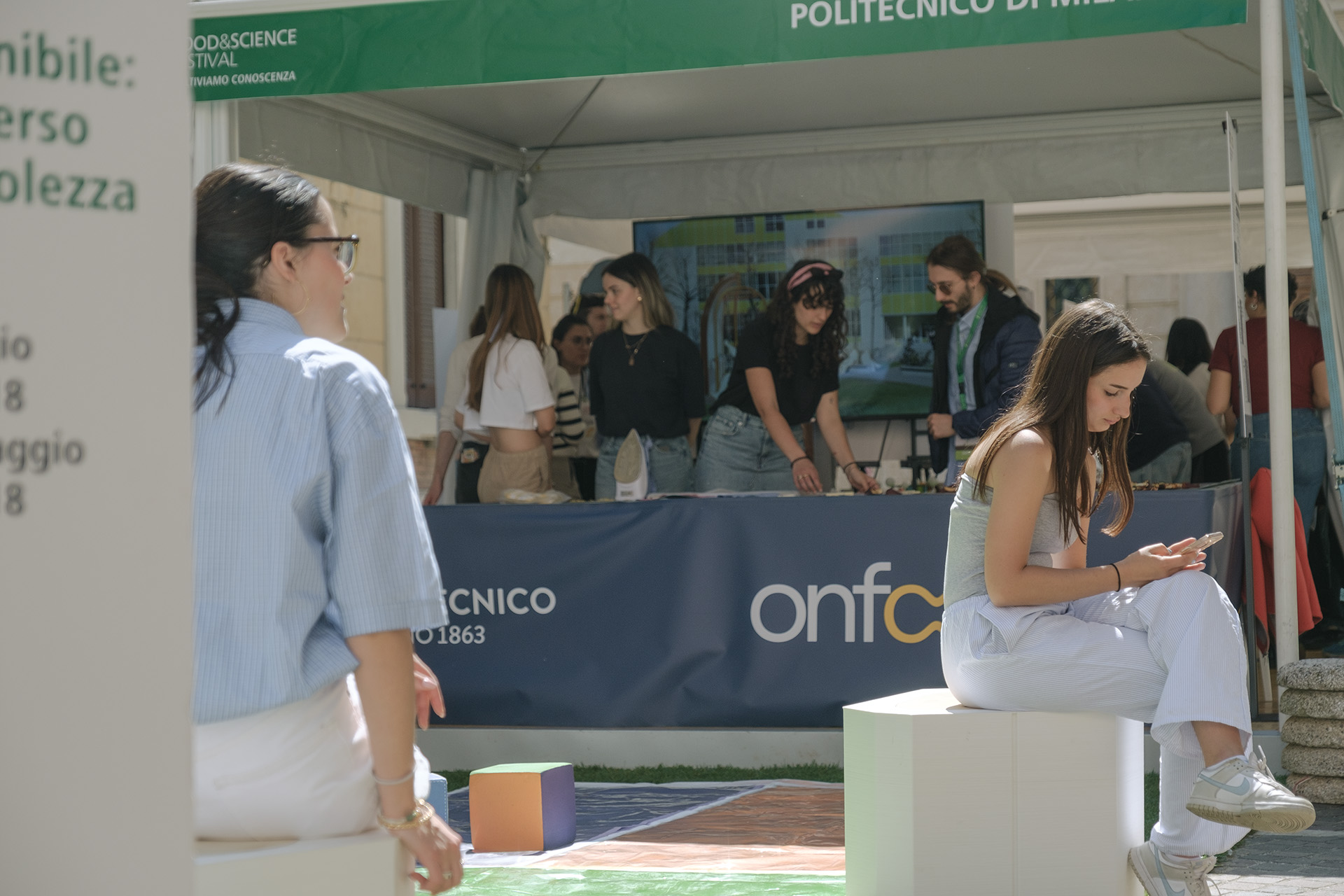
The research of OnFoods emphasizes these topics, particularly through the efforts of the research groups within Work Package 1.2 "Promoting Sustainability in Food Distribution", and specifically with the flagship research project managed by Politecnico di Milano, "Public and Private Food Procurement and Short Food Value Chains in Urban Areas".
Researchers from the PPP-URB project created the "Spazi Gustosi" workshop, where students and researchers from Politecnico di Milano's Design Department engaged people in projects designed to rethink how we relate to food within school and academic contexts.
These ten experimental projects envision and prototype innovative solutions for socializing common spaces, conserving food, and even growing fruits and vegetables within university campuses.
Waste Not, Want Not
Also in Via Goito, the "Scarti di Valore" panel presented the results of various OnFoods projects under Spoke 2, which focuses on valorizing food waste and optimizing distribution systems.
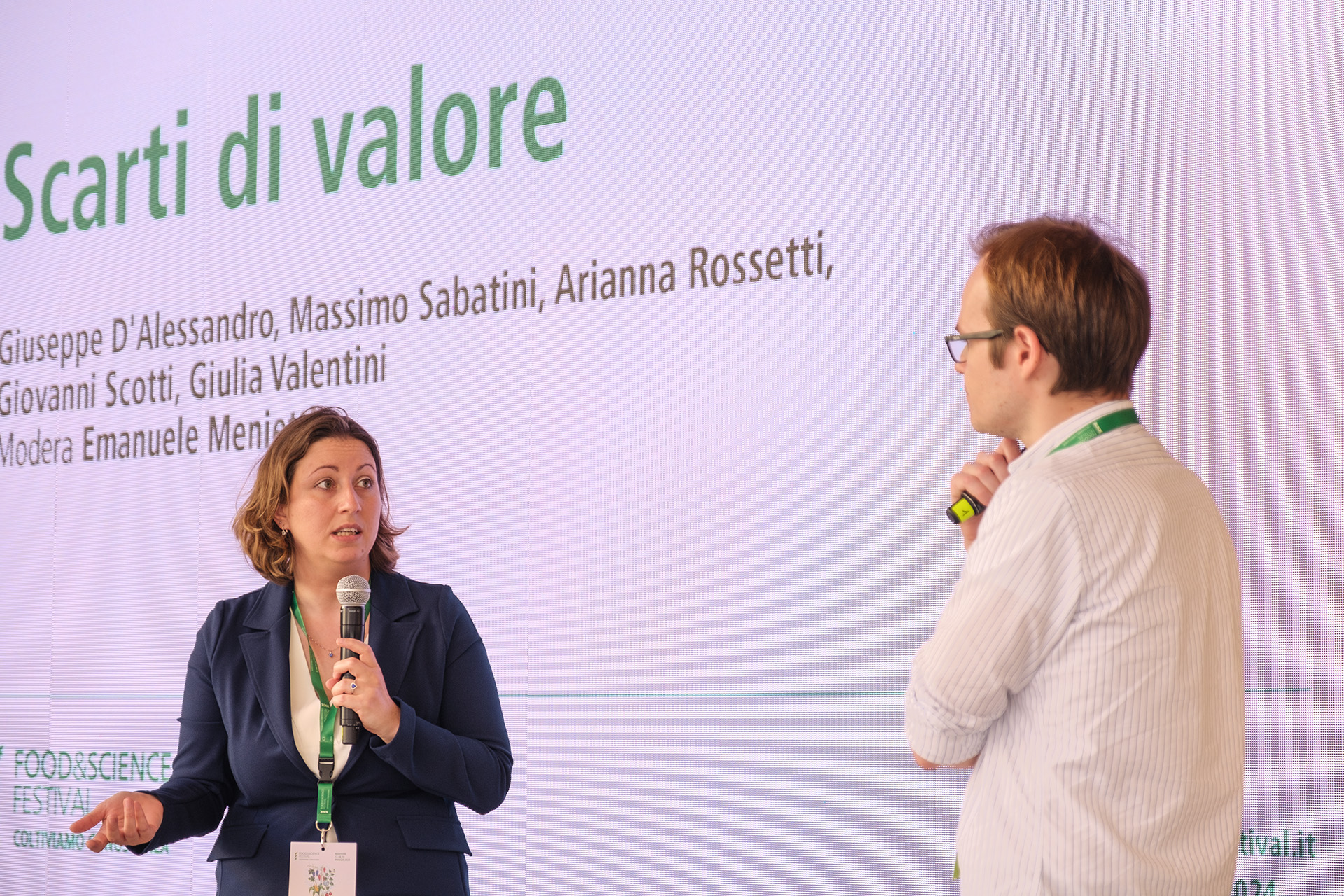
Giulia Valentini and Giovanni Scotti from the Food Sustainability Lab at Politecnico di Milano's School of Management discussed the WAMM project, an acronym for "Instruments for Food Waste Monitoring and Measurement at Firm Level Across the Distribution System."
WAMM addresses measurement and monitoring processes that quantify food waste, identifying opportunities for intervention to introduce innovative methods and tools for efficiently tracking food surpluses and determining how to valorize them.
Researchers in the WAMM project are working simultaneously on the food processing and distribution sectors. For the processing sector, they are analysing data collected through a nationwide survey, part of the results of which were presented at the Food&Science Festival. Concerning the distribution sector, the project is at the stage of collecting data from large-scale organised distribution.
The panel also featured Arianna Rossetti from the Department of Chemistry, Materials, and Chemical Engineering, who is involved in the Extra-Bio and Character-Bio projects. These projects utilize compounds derived from agricultural biomass and food industry residues. Arianna discussed the development of a method for extracting polyphenols and other metabolites from food by-products, to reuse them in the synthesis of silver nanoparticles for antimicrobial packaging films. Preliminary chemical analyses and evaluations of innovative solvents were conducted in collaboration with Università Cattolica del Sacro Cuore in Piacenza.
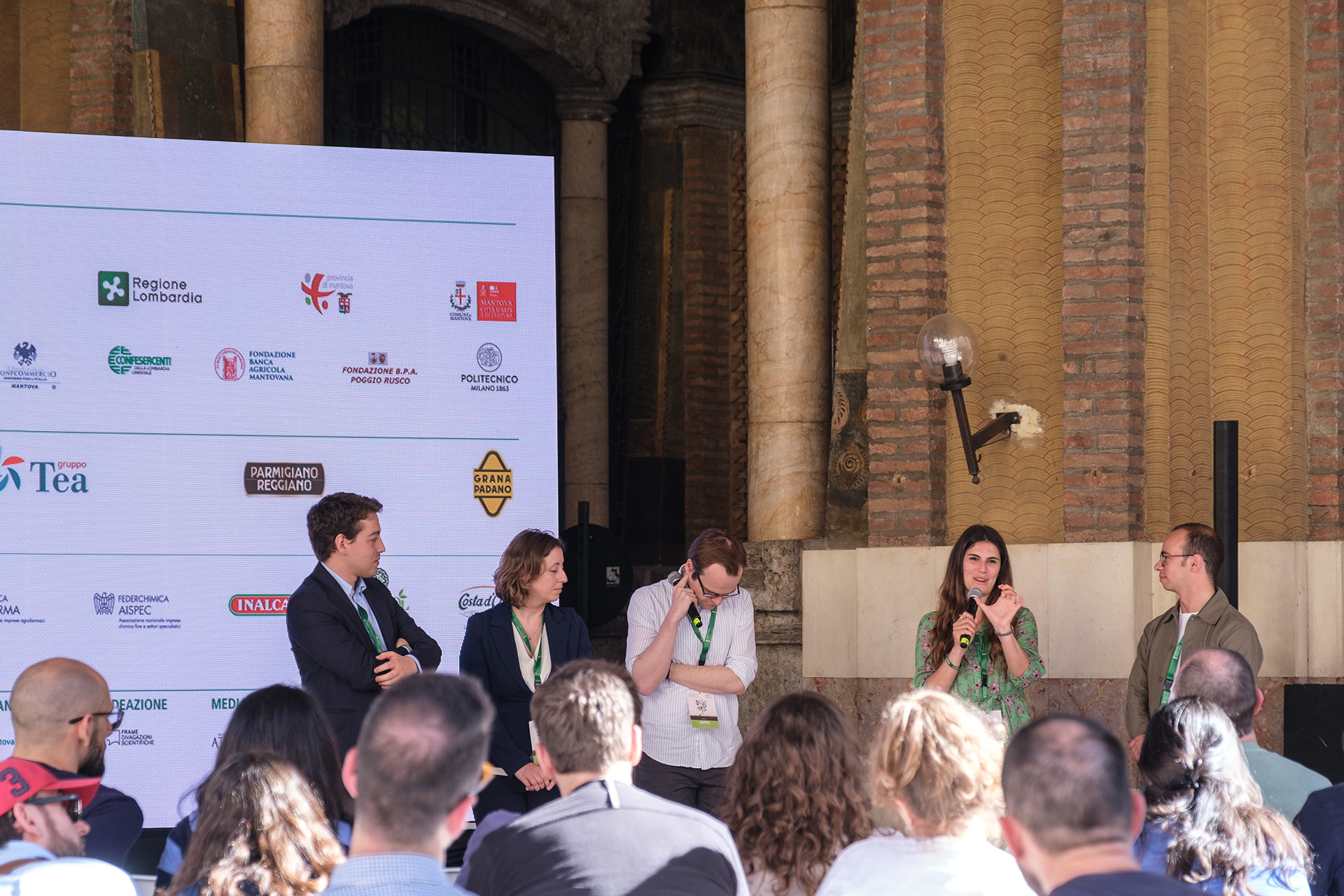
Imagining scenarios for the future of food
Marta Corubolo, a researcher in social innovation design, participated in a panel introduced by Prof. Roberta Sonnino, Professor of Sustainable Food Systems at the University of Surrey in the UK and an internationally recognized voice on governance and local food policies.
Marta presented the perspective of a designer working on co-designing common strategies for governance, promotion, and replicability of sustainable food practices in urban and peri-urban areas.
The SCIN-GO project, in which Marta Corubolo is involved, engages these stakeholders in co-creating scenarios that project them into the near future, showcasing solutions and services applied to facilitate food access in urban areas.
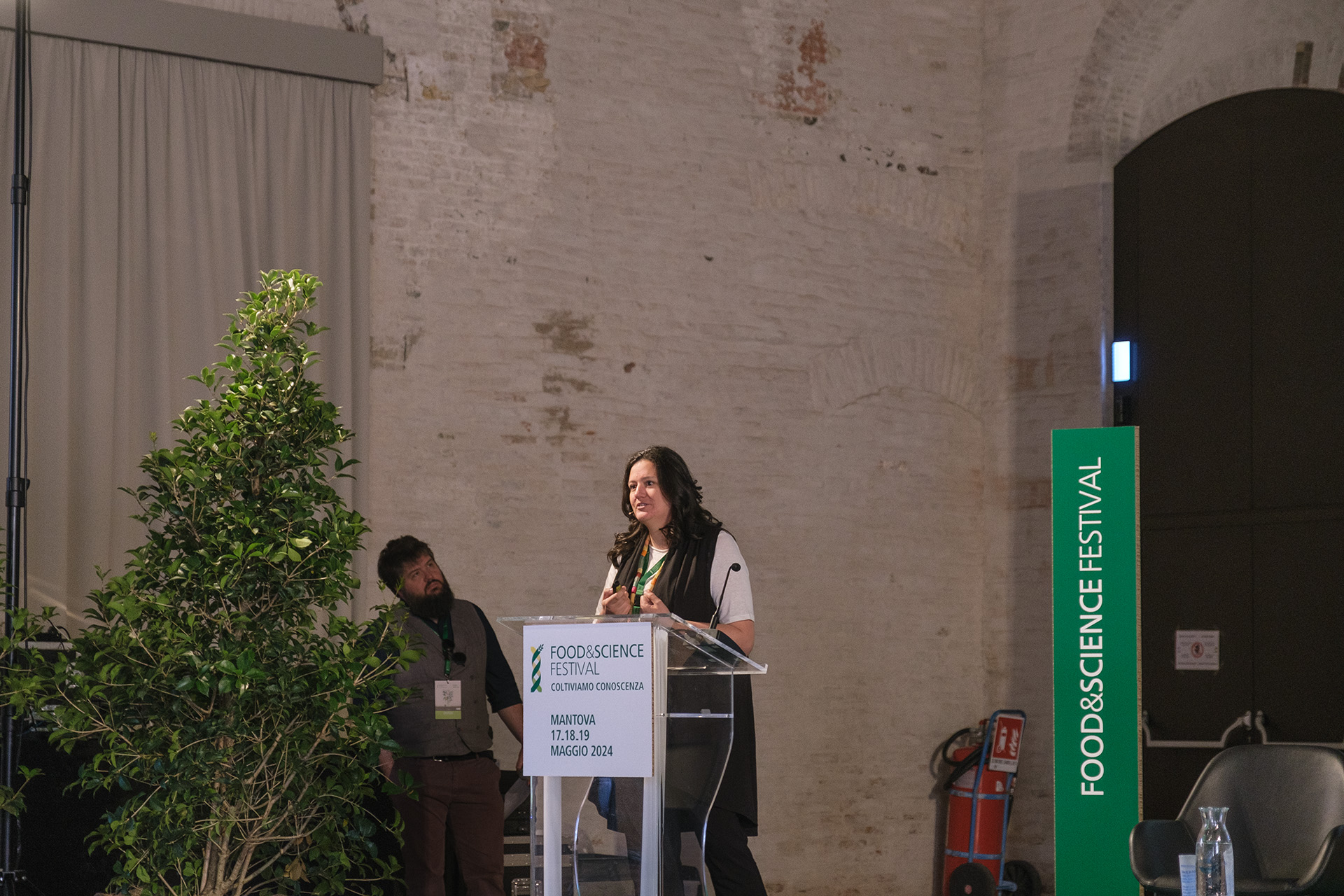
If nutrition were a journey, what kind of traveler would you be? Nomads, tourists, or guides?
This was the question posed by the interactive survey at the "Gusto Sostenibile" lab, a digitial journey towards environmental awareness. By answering simple questions about the composition of their last meal, participants could discover the environmental impact of their diet.
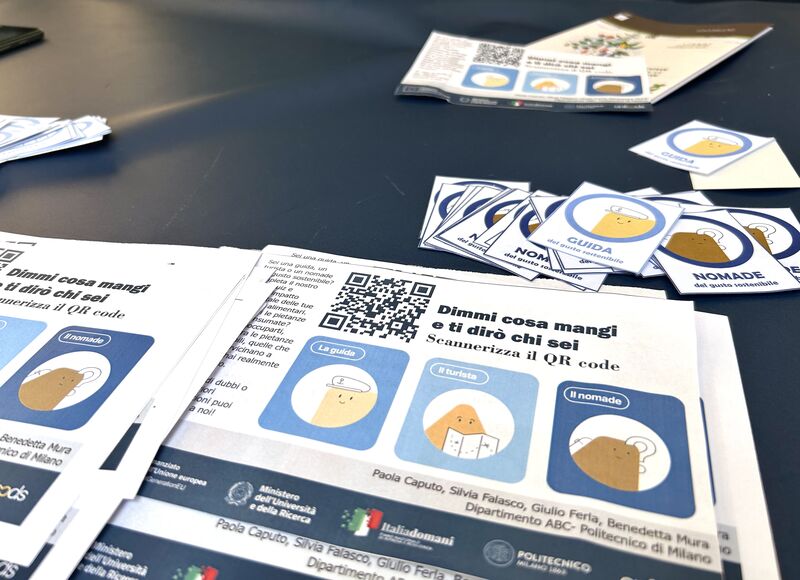
The lab was part of a public engagement event for the PER-REP project, coordinated by Paola Caputo, associate professor in Environmental Engineering Physics at the Department of Architecture, Built Environment, and Construction Engineering.
The PER-REP research project is developing and testing a digital decision-support tool for agri-food companies seeking to move towards sustainability criteria.
In their work, based on the multi-criteria analysis method, they start by analysing the production schemes in use and, on the basis of the scores acquired by the companies, provide recommendations for the reduction of environmental impacts.
After a long phase of literature review on the topic, PER-REP researchers are now working on the development of the digital decision support tool.
They have started collecting data with some companies to test the method and are involving some key players in the process in focus groups.
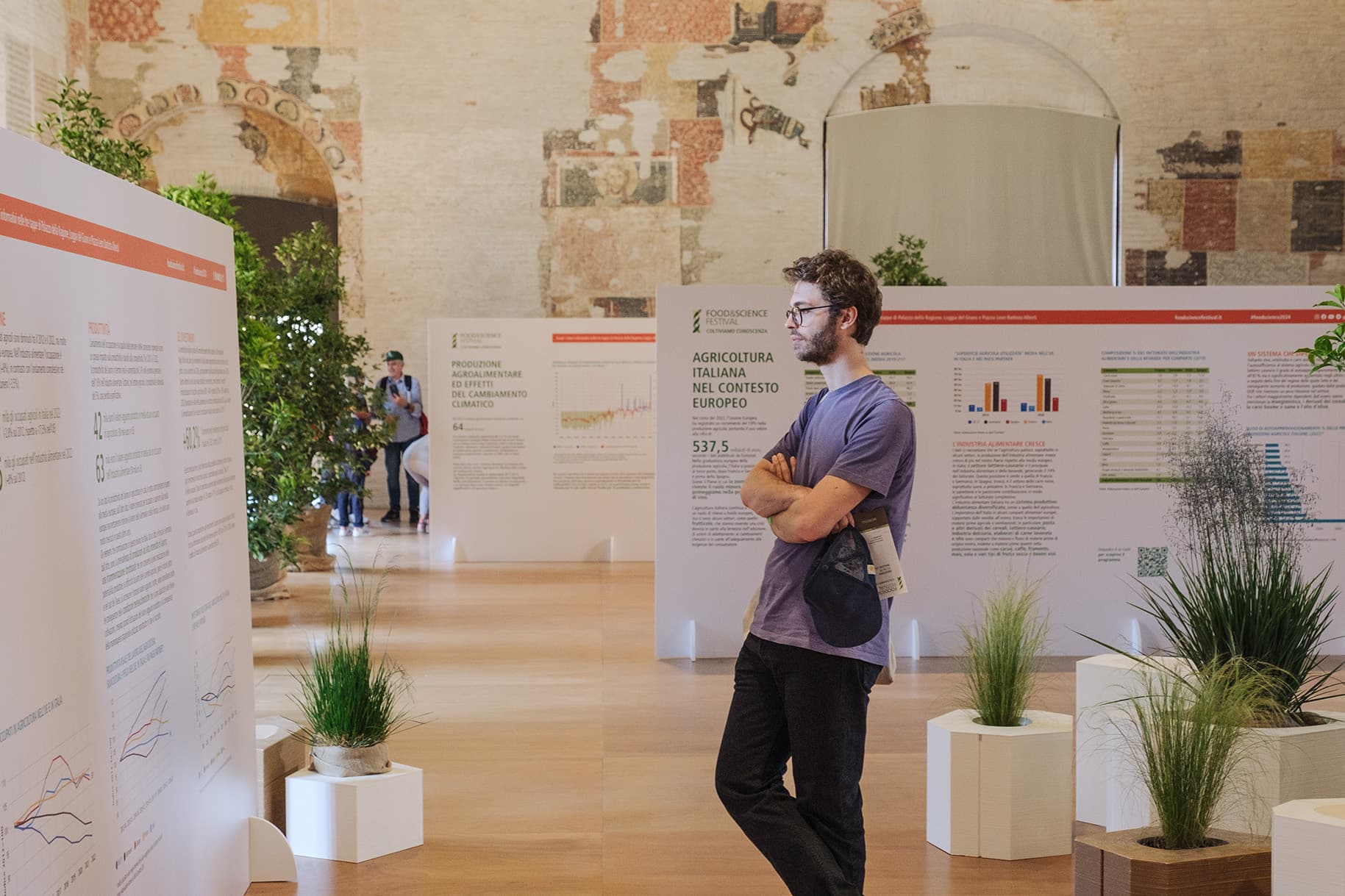
This blog post is related to
Global Sustainability
Fair food market for healthy citizens
Policy, behaviour and education
Smarter behaviors for healthier diets
Instruments for food waste monitoring and measurement at firm level across the distribution system
Principal investigators
Referred to
Spoke 02Extraction of bioactive compounds and/or macromolecules from food by-products and wastes
Principal investigators
Referred to
Spoke 02Smart and circular food system and distribution
To valorize food waste and smart and virtuous logistics
Public and private food procurement and short food values chains in urban areas
Principal investigators
Referred to
Spoke 01Principal investigators
Referred to
Spoke 02Scientific Innovation, Technology and Sustainability: Governance and Regulation
Principal investigators
Referred to
Spoke 01

